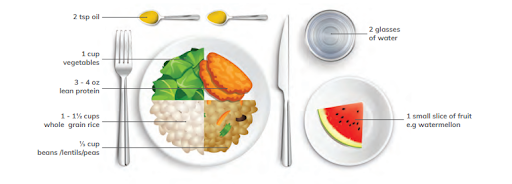
Muslims who fast during Ramadan must abstain from eating, drinking, taking oral medications, and smoking; however, there are no restrictions on food or fluid intake and taking medications between sunset and dawn. Most people consume two meals per day during this month, one after sunset and the other before dawn. In 2025, Ramadan takes place Saturday March 1 to Saturday March 29. Eid al Fitr 2025 marks the end of the holy month of Ramadan and will be celebrated on Sunday March 30 - tentative date, as it dependent on the sighting of the moon. The holy month of Ramadan is a time for friends and family to gather and focus on fasting, prayers, and helping people in need.
Pre-Ramadan Medical Assessment
The act of fasting could impact your blood glucose and blood pressure levels, so for these reasons it is important that you speak with your diabetes team about your wish to observe Ramadan. The diabetes team will perform a pre-Ramadan medical assessment, ideally 1-3 months before Ramadan. This assessment will help determine any risks of fasting and help create a Ramadan fasting plan to ensure you can fast safely.
An appointment after Ramadan with your diabetes team is recommended to discuss your fasting experience and need to adjust your Ramadan fasting plan for the future.

